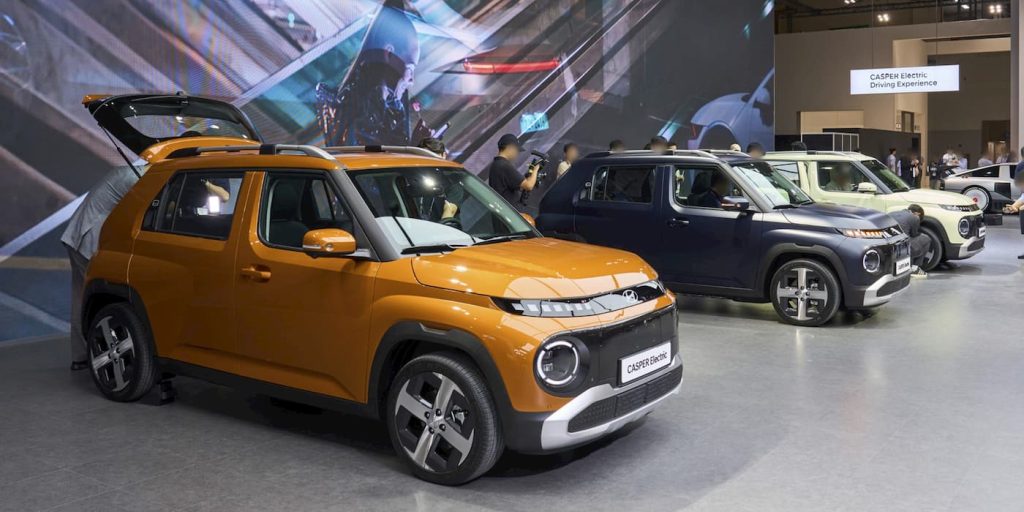
Kia introduced its new Syros SUV last week. Although it was launched with a gas-powered engine, Kia plans to launch the all-electric version soon. The new Kia Syros EV will share underpinnings with the Hyundai Inster EV as its latest low-cost electric model.
What we know about the upcoming Kia Syros EV
India’s EV market is expected to surge over the next few years. In 2024, the India EV market is projected to be valued at around $24 billion. That number is expected to reach nearly $118 billion by 2032.
Kia is looking to take advantage of the transition. After launching its first vehicle (Seltos) in India in 2019, Kia is already one of the top 10 auto manufacturers in the region.
The Korean auto giant has added several models to its lineup, including the Sonet, Carnival, Caren, and electric EV6 and EV9 SUVs.
Just last week, the Kia Syros made its global debut. Kia calls the compact SUV “revolutionary,” but there’s one problem: it only has two gas-powered engine options. That will soon change. According to Autocar India, Kia will launch the Syros EV in India in early 2025.

Although no other details were confirmed, the Kia Syros EV will share its K1 platform with the Hyundai Inster EV. Hyundai’s compact electric crossover has two battery options, 42 kWh and 49 kWh, good for 300 km (186 mi) to 355 km (220 mi) range on the WLTP cycle.
In Europe, the Inster EV starts at around $30,000. In Korea, the electric crossover is known as the Casper Electric, and prices, including incentives, start around $20,000.

Kia’s new electric SUV is expected to start in the price range of Rs 15 lakh-20 lakh (ex-showroom), or around $17,500 to $23,500.
Despite the difference in powertrain, the electric version is expected to have the same styling and features as the gas-powered models. Kia expects between 50,000 and 60,000 in sales between the upcoming electric Carens and Syros EV models by 2026.
The company is launching a series of more affordable, mass-market EVs globally, including the EV3, EV4, and EV5, to secure its spot in the industry as it shifts to electric vehicles.
FTC: We use income earning auto affiliate links. More.




Comments